Cover Gallery: Celebrating America
These Post covers and illustrations honor the land of the free and the home of the brave. Happy Independence Day!
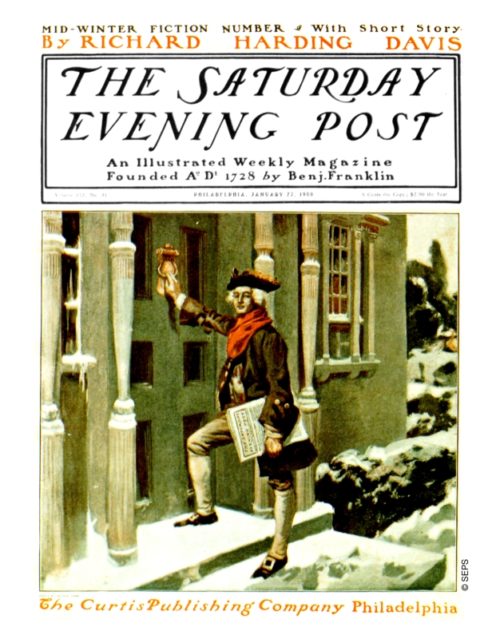
George Gibbs
January 27, 1900
George Gibbs painted over 40 covers for the Post during the first decade of the 20th century. He was a competent illustrator who could depict romanticized historical scenes and subjects to the taste of editor George Horace Lorimer.
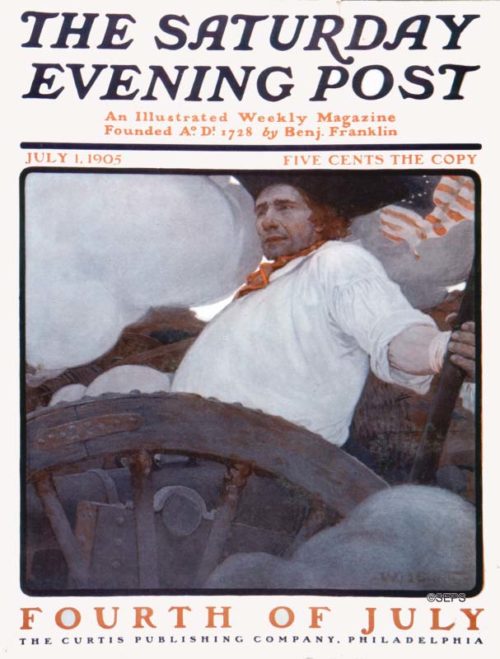
Walter H. Everett
July 1, 1905
Walter H. Everett created covers for the Post during a time when war dominated the magazine. Many of his covers feature soldiers and pirates and occasionally a beautiful woman.
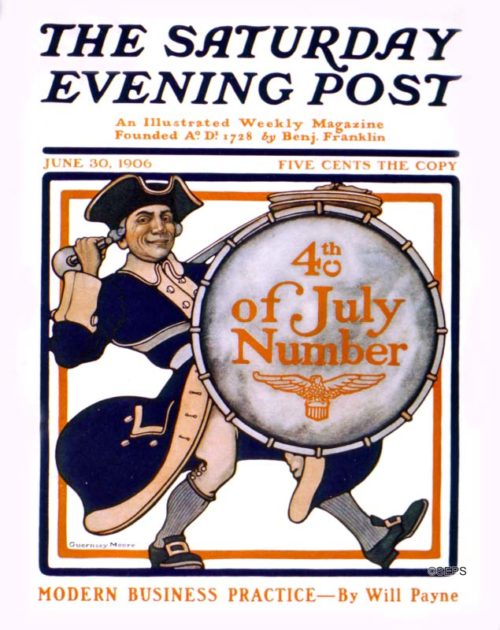
Guernsey Moore
June 30, 1906
Guernsey Moore illustrated the first colored cover for the Saturday Evening Post. In 1900, he illustrated new lettering for the Post’s masthead and in 1904 became the art editor of the magazine.
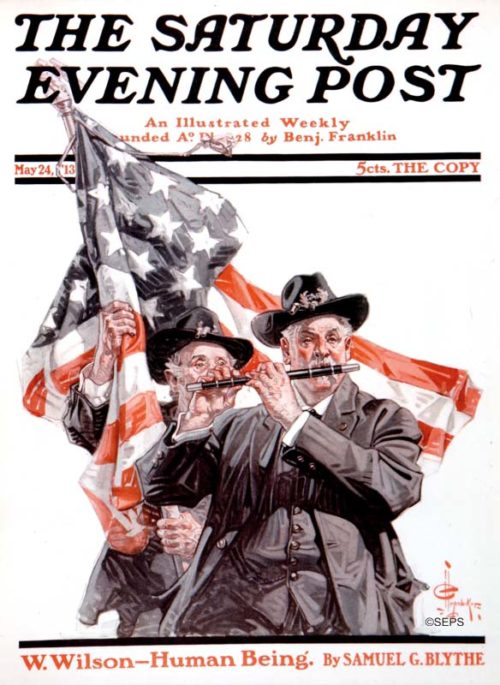
J.C. Leyendecker
May 24, 1913
J.C. Leyendecker was only one of the four major artists from the first decade to continue illustrating Post covers after 1910. Over the course of the next decade, Leyendecker painted well over 100 covers for the magazine, including these patriotic Civil War veterans in 1913.
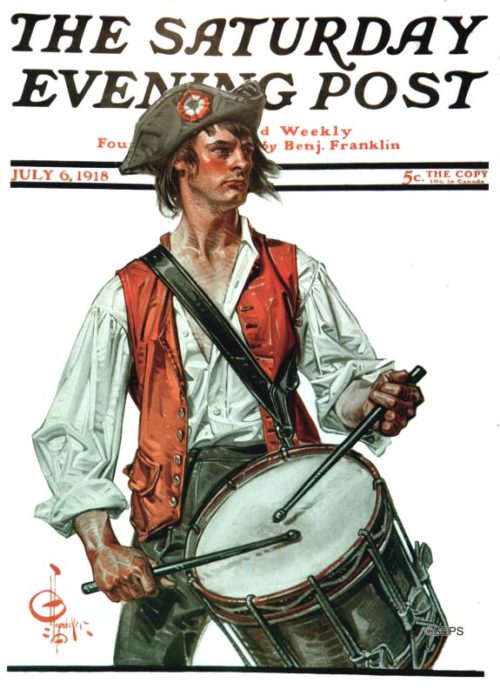
J.C. Leyendecker
July 6, 1918
For several years, war influenced the covers of the Saturday Evening Post, and many were painted by J.C. Leyendecker. This 1918 cover of a colonial drummer was painted by Leyendecker despite his anti-war views, which he got to express with his famous New Year’s babies.
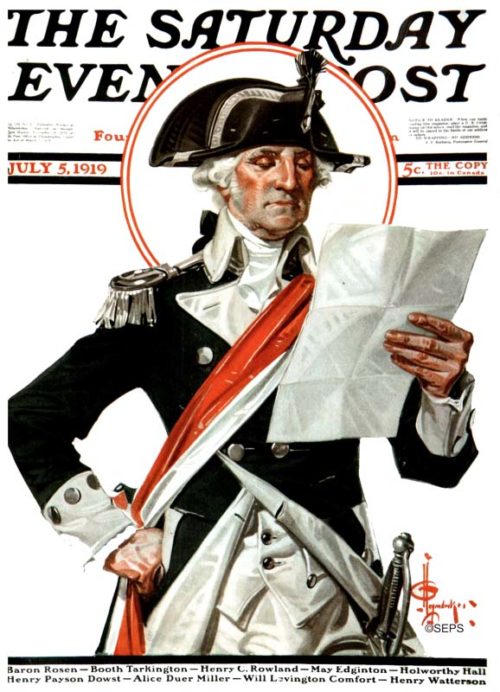
J.C. Leyendecker
July 5, 1919
J.C. Leyendecker experimented with a variety of subjects and attitudes, but his most noteworthy work marked and celebrated America’s holidays. He painted covers for several holidays from 1910-1919 and some, like the Fourth of July and the New Year, belonged to him almost exclusively.
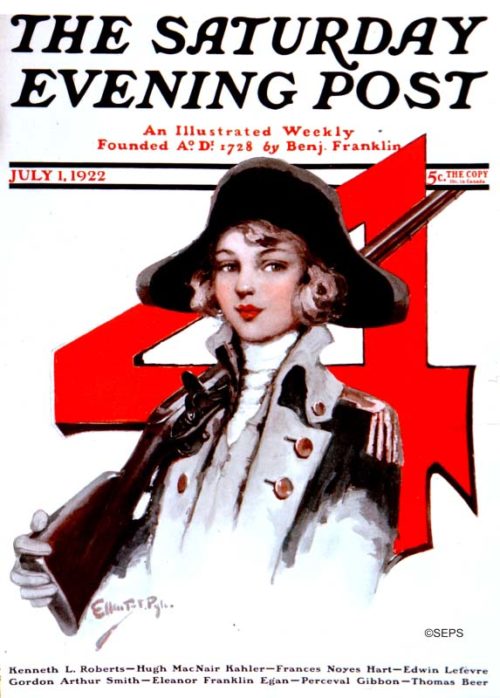
Ellen Pyle
July 1, 1922
This 1922 cover was created by one of the Post’s most well-known female artists, Ellen Pyle. Known for painting children and beautiful young women with a goal of capturing the “unaffected natural American type,” Pyle’s four children became models in most of her covers.
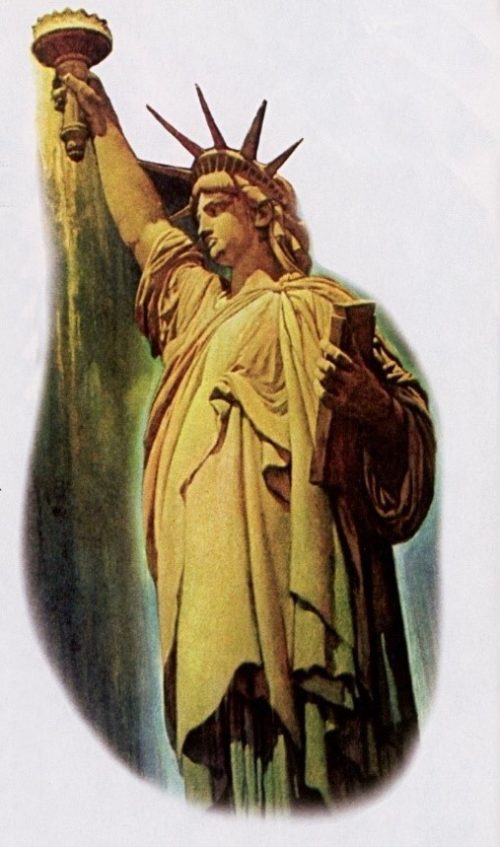
Norman Rockwell
October 11, 1941
This Norman Rockwell Statue of Liberty is part of a more detailed illustration with Lady Liberty shooting from the sky like a meteor as onlookers watch from below.
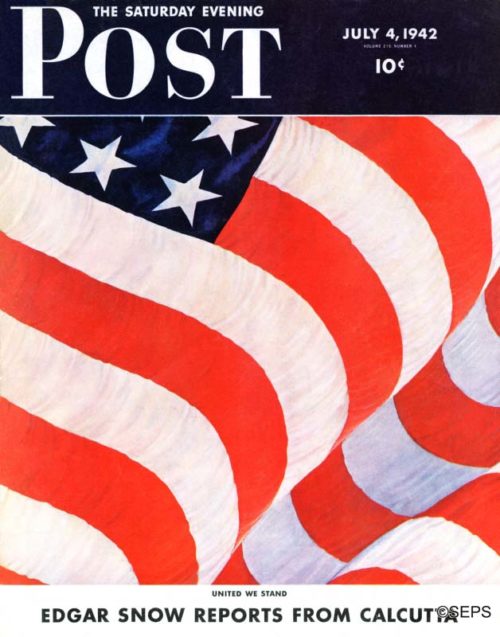
John Clymer
July 4, 1942
John Clymer created 80 Saturday Evening Post covers from 1942-1962. He often painted patriotic scenes covering vast landscapes, making this close-up of the American flag something unique.
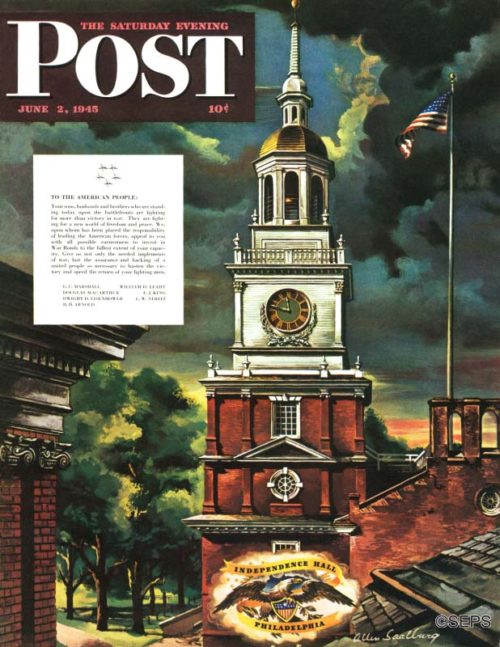
Allen Saalburg
June 2, 1945
In 1945, Independence Hall was just across the way from the Post offices, and, more than any other structure, it is a symbol of American perseverance and love of liberty. Saalburg’s painting is a view of Independence Hall looking west. The building at the left is The American Philosophical Society. The Post‘s offices were directly behind the trees in the left foreground.
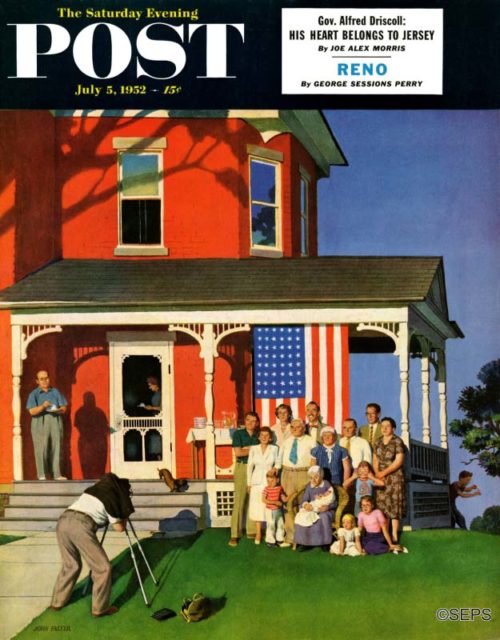
John Falter
July 5, 1952
John Falter painted more than 120 covers for the Post. He loved to illustrate Midwestern Americana, which he perfectly captures in this idealized family reunion scene. After the Post started using photographs rather that illustrations on its covers, Falter turned to portrait painting and book illustration. Many of those had a patriotic bent as well: he illustrated a special edition of Carl Sandburg’s Abraham Lincoln – The Prairie Years and Houghton-Mifflin’s Mark Twain series.